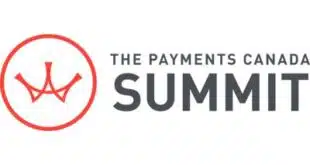Visa Inc. and Mastercard Inc. have made it plain in recent years they’re interested in something much bigger than card payments. A few weeks ago, Visa underscored its own determination to be the network for the world’s payments economy by announcing it will lay out fully $5.3 billion to buy Plaid Inc., a 7-year-old company that connects nonbank payments providers like Stripe and Venmo with users’ bank accounts.
The deal, which Visa expects will close within the next three to six months, brings the world’s largest card-payments network closer to its ambition to facilitate “the movement of funds for any purpose around the world,” according to Visa chief executive Alfred Kelly, who discussed the transaction during a conference call in January.
But the deal also represents a big bet on a “network-of-networks” strategy Visa has pursued recently that involves closer cooperation, rather than rivalry, with the digital startups whose businesses require access not just to consumers’ credit and debit cards but to their ultimate source of funds. The deal for Plaid is a “very important acquisition. Their solution will allow Visa to address [real-time payments] for any number of use cases,” says Patricia Hewitt, principal at PG Research & Advisory Services, a Savannah, Ga.-based consultancy, in an email message.
That funding access is what San Francisco-based Plaid enables for a range of companies, many of which didn’t exist a decade ago, including fintechs like Acorn, Betterment, Chime, and Square, as well as Stripe and Venmo, a unit of PayPal Holdings Inc.
And Plaid’s network is growing fast. It provides bank connections for more than 200 million users of these apps, up from 129 million a year ago. Indeed, that number has grown at a 115% average annual rate since 2015. With these links under its tent, Visa can “deliver payments initiation to developers globally for non-card [payments] and [real-time] payments,” Kelly said.
Visa has shown itself willing to spend big money to secure other anchors in that network-of-networks strategy—and push well beyond card payments. Last year, for example, it paid $320.4 million for Earthport Plc, a cross-border payments provider, after prevailing in a bidding war with Mastercard. At a stroke, that deal doubled Visa’s bank-account connections in the top 50 global markets from 50% coverage to 100%, estimates Robert Napoli, an analyst with William Blair & Co. LLC.
“Visa’s evolving from being a card specialist to being a general-purpose payments provider,” notes Rick Oglesby, principal at AZ Payments Group, a consultancy in Mesa, Ariz., in an email message.
But buying Plaid could make sense just from the point of view of the rapid development of the market the company operates in. Globally, 75% of the world’s consumers who have an Internet connection are using a fintech app, according to numbers provided by Visa. That’s up from just 18% four years ago. Plaid alone links more than 2,600 fintech developers to more than 11,000 companies in the banking and financial-services sectors.
“The fintechs’ connection with any network came primarily if they offered a product that could be used at the point of sale. This acquisition would give Visa the opportunity to engage with the fintech market in addition to the card-payment rails,” notes Ben Jackson, chief operating officer at the Innovative Payments Association, Washington, D.C., in an email message.
Opportunities like that haven’t escaped the notice of either of the country’s largest payments networks. “This acquisition by Visa, while significant, continues a well-established trend,” says Tim Sloane, vice president of payments innovation at Mercator Advisory Group, a Marlborough, Mass.-based consultancy, in an email message. “Both networks are positioning themselves as providers of a wide portfolio of bank products, not surprisingly aligned with payments and managed access to bank data.”
Visa clearly expects a big dividend on this latest investment. Officials said the company will pour resources into expanding Plaid’s reach internationally in an effort to globalize its base of fintechs and banks.
That may take some time, but Visa projects Plaid will add anywhere from 80 to 120 basis points to its revenue growth rate as soon as 2021. “We intend to invest heavily in the early years to expand internationally,” noted Vasant Prabhu, Visa’s chief financial officer, during the Jan. 13 presentation.
But for all that potential, the Plaid deal wasn’t swaying investors one way or the other the day after the big announcement. At mid-morning, Visa’s stock was trading at nearly $196 per share, up less than 0.50%.





